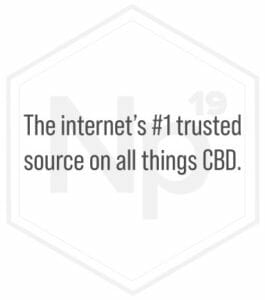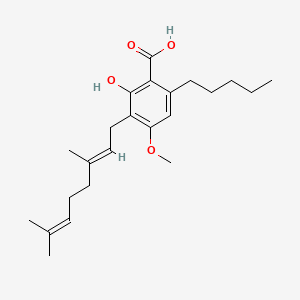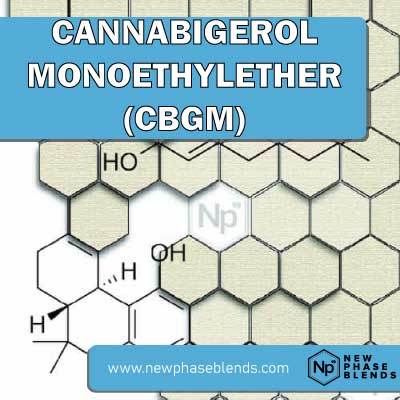There are over 480 different compounds in the cannabis plant, with more than 124 known as cannabinoids. There could be even more cannabinoids, these are simply the knows scientists have discovered to date.
These compounds are what gives the plant the therapeutic features that it has. The two most common cannabinoids are delta-9-tetrahydrocannabinol (THC) and cannabidiol (CBD).
THC is known for its psychoactive effects, while CBD is known for its modulatory effects.
WHAT IS CANNABIGEROLIC ACID (CBGA)?
Apart from these two, we have other cannabinoids like cannabigerol acid (CBGA). CBGA is an acidic derivative of CBG, or cannabigerol. This is where the acid at the end of the name comes from.
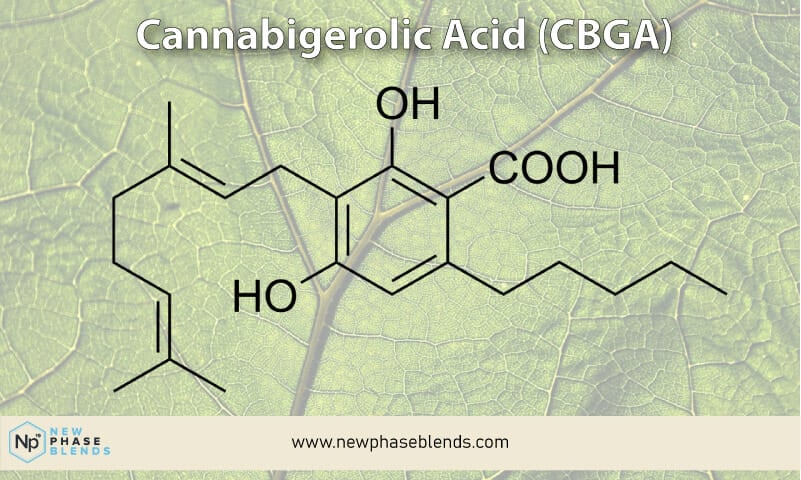
Cannabigerol is often called the mother cannabinoid because no other cannabinoid will exist without some level of CBG.
For more than 50 years, scientists have been aware of the compound cannabigerol (CBG) – it was first discovered by Israeli scientists. About 30 years later, Japanese scientists then discovered that CBGA was the precursor to CBG.
The formation of CBGA occurs when two organic compounds in the plant; geranyl pyrophosphate and olivetolic acid combine. This is an essential building block in the formation of other cannabinoids like CBDA, THCA, CBCA, and CBG.
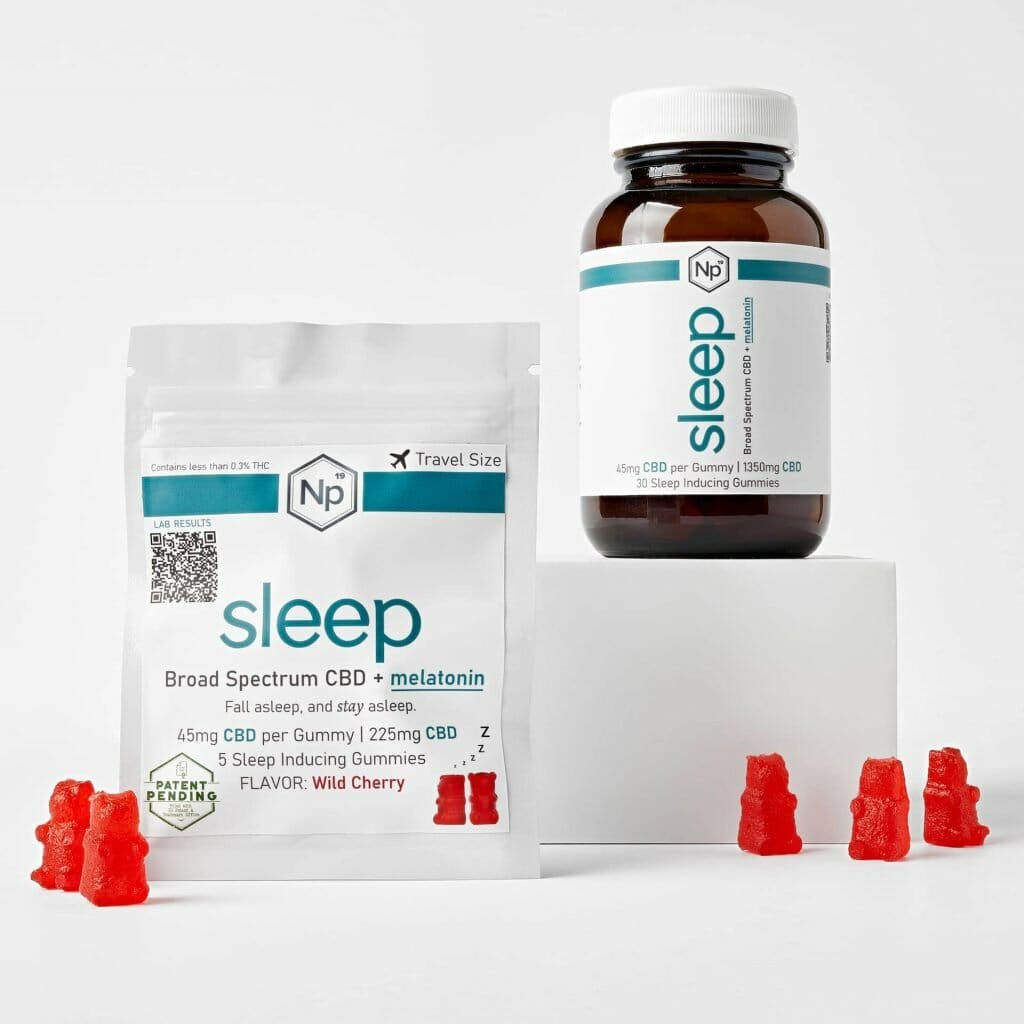
Olivetolic is a compound used to make man-made forms of THC. It’s used in chemistry quite frequently, in this regard.
HOW DOES CBGA WORK?
CBGA is a non-psychoactive cannabinoid just like CBD.
While THC gives you trippy, intoxicating effects when taken, CBGA acts as an antagonist that may prevent this type of effect. Just as it is with CBG, CBGA interacts with the endocannabinoid receptors to stimulate their response.
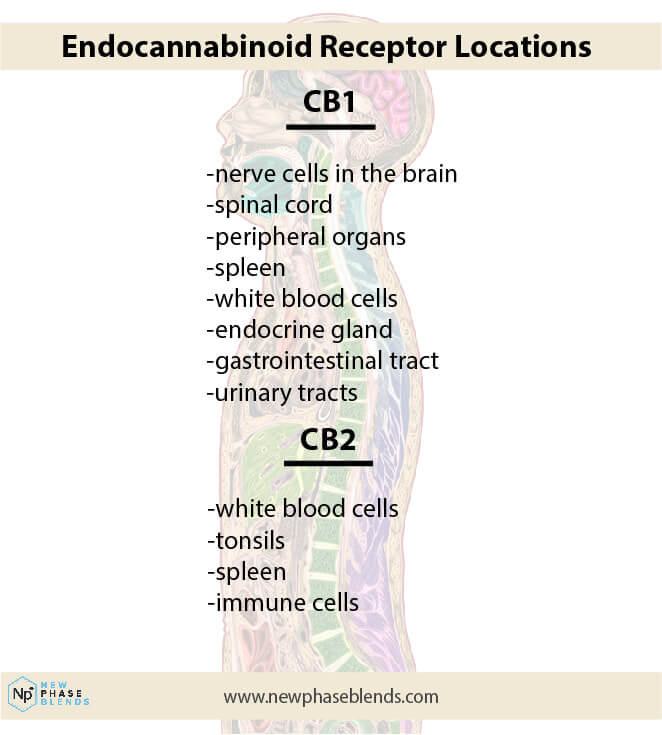
It is important to note that these receptors are active players in regulating activities like mood, appetite, and response to pain.
The endocannabinoid system can actually trigger different responses, based on the different cannabinoids, or endocannabinoids, we consume. Check out this video for more information on this amazing bodily system.
Since CBGA and CBD are both non-psychoactive, they have some similarities in their therapeutic activities.
POSSIBLE THERAPEUTIC BENEFITS OF CBGA
For quite some time, there was actually very little medical research conducted in regards to CBGA. The early studies give us hints on some of its potential applications in medicine.
Then 2022 came along.
What happened in 2022, you ask?
CVBGA and COVID 19 Prevention
In January of 2022, Oregon State University released a study that concluded CBDA and CBGA successfully prevented the transmission of COVID in human cells.
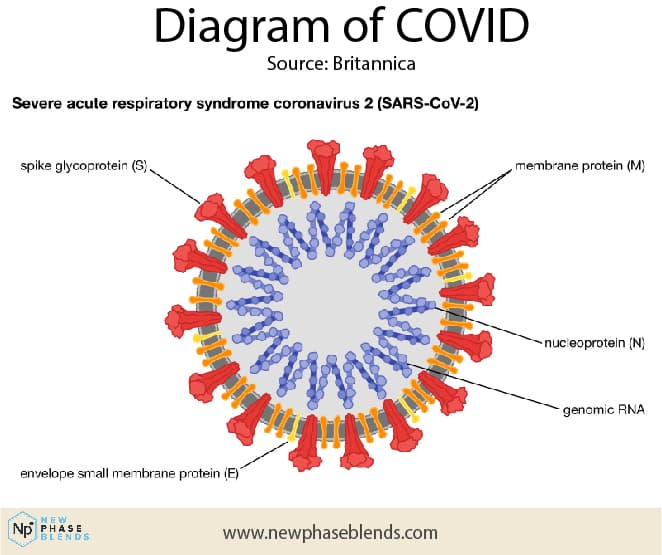
This research was led by Richard van Breeman. Van Breeman stated that, “our research showed the hemp compounds [CBGA and CBDA] were equally effective against variants of SARS-CoV-2, including variant B.1.1.7, which was first detected in the United Kingdom, and variant B.1.351, first detected in South Africa.”
This research brought some more light onto the fact that there are actually more cannabinoids out there than just CBD and THC.
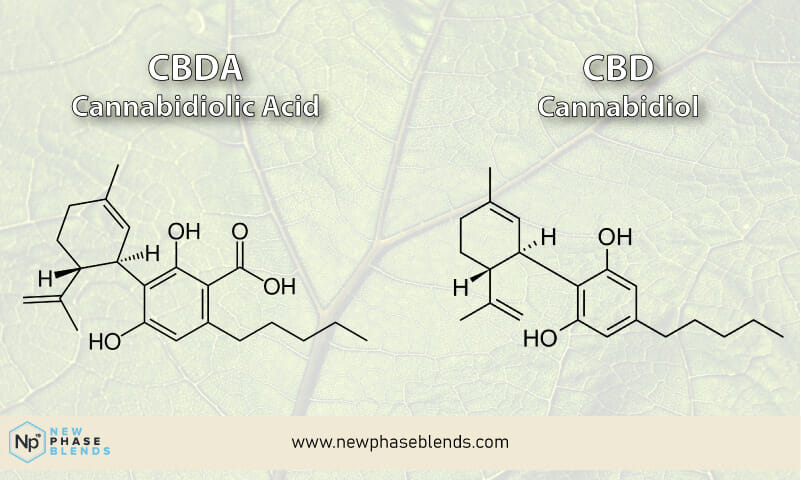
While these two cannabinoids are fantastic, and have changed the lives of so many people, it is important to remember that there are still over a hundred more cannabinoids that might be able to benefit us in other ways.
Here are some other areas in which CBGA may offer health benefits to humans.
Inflammatory Bowel Disease (IBD)
A study done in 2013 showed that CBGA may be useful in the treatment of IBD. The study carried out on rats showed that CBGA was able to reduce the production of nitric oxide and oxidizing agents in the small intestine.
It was also able to mitigate the severity of colitis in the rats that were induced with it.
Colon Cancer
Researchers were able to look at the cytotoxic effects of CBGA extracted from cannabis. It was discovered that not only did it kill the cancer cells, it also helped hasted the death of cancer cells.
This makes researchers believe that CBGA may be effective in treating cancer.
*Please do not confuse research showing positive effects of CBGA on cancer with it being a successful cancer treatment. Please consult with your doctor if you, or someone you know, is struggling with cancer.
Metabolic Disorders
A silico study carried out in 2019 showed that CBGA activated Peroxisome Proliferator-Activated Receptors (PPARs), thereby stimulating the metabolism of lipid and reducing excessive accumulation. This study still requires animal and human trials.
Cardiovascular Disease
In vitro study shows that CBGA inhibits enzyme aldose reductase, the main contributor to oxidative stress that leads to diabetic complications.
Huntington’s Disease
Huntington’s Disease is a progressive brain disorder that leads to the loss of cognition and movement. It is one of the degenerative diseases that researchers are hoping CBGA would have the potential in treating. A study carried out in 2015 shows that CBGA protects the neurons of nice that have Huntington’s disease.
Interesting Facts About CBGA
- CBGA is a derivative of a cannabinoid (CBG) known as the ‘mother of all phytocannabinoids.’ Without CBG, no other cannabinoid would exist.
- CBGA is an antecedent of all other cannabinoids discovered in the cannabis plant.
- CBGA, along with CBDA, contribute to stopping the spread of the COVID virus.
References
Smeriglio A, Giofrè SV, Galati EM, et al. Inhibition of aldose reductase activity by Cannabis sativa chemotypes extracts with high content of cannabidiol or cannabigerol. Fitoterapia. 2018;127:101-108. doi:10.1016/j.fitote.2018.02.002
Nallathambi R, Mazuz M, Namdar D, et al. Identification of Synergistic Interaction Between Cannabis-Derived Compounds for Cytotoxic Activity in Colorectal Cancer Cell Lines and Colon Polyps That Induces Apoptosis-Related Cell Death and Distinct Gene Expression. Cannabis Cannabinoid Res. 2018;3(1):120-135. Published 2018 Jun 1. doi:10.1089/can.2018.0010
Borrelli F, Fasolino I, Romano B, et al. Beneficial effect of the non-psychotropic plant cannabinoid cannabigerol on experimental inflammatory bowel disease. Biochem Pharmacol. 2013;85(9):1306-1316. doi:10.1016/j.bcp.2013.01.017
Valdeolivas S, Navarrete C, Cantarero I, Bellido ML, Muñoz E, Sagredo O. Neuroprotective properties of cannabigerol in Huntington’s disease: studies in R6/2 mice and 3-nitropropionate-lesioned mice. Neurotherapeutics. 2015;12(1):185-199. doi:10.1007/s13311-014-0304-z
van Breemen RB, Muchiri RN, Bates TA, Weinstein JB, Leier HC, Farley S, Tafesse FG. Cannabinoids Block Cellular Entry of SARS-CoV-2 and the Emerging Variants. J Nat Prod. 2022 Jan 10. doi: 10.1021/acs.jnatprod.1c00946. Epub ahead of print. PMID: 35007072.
Back to List of Cannabinoids



